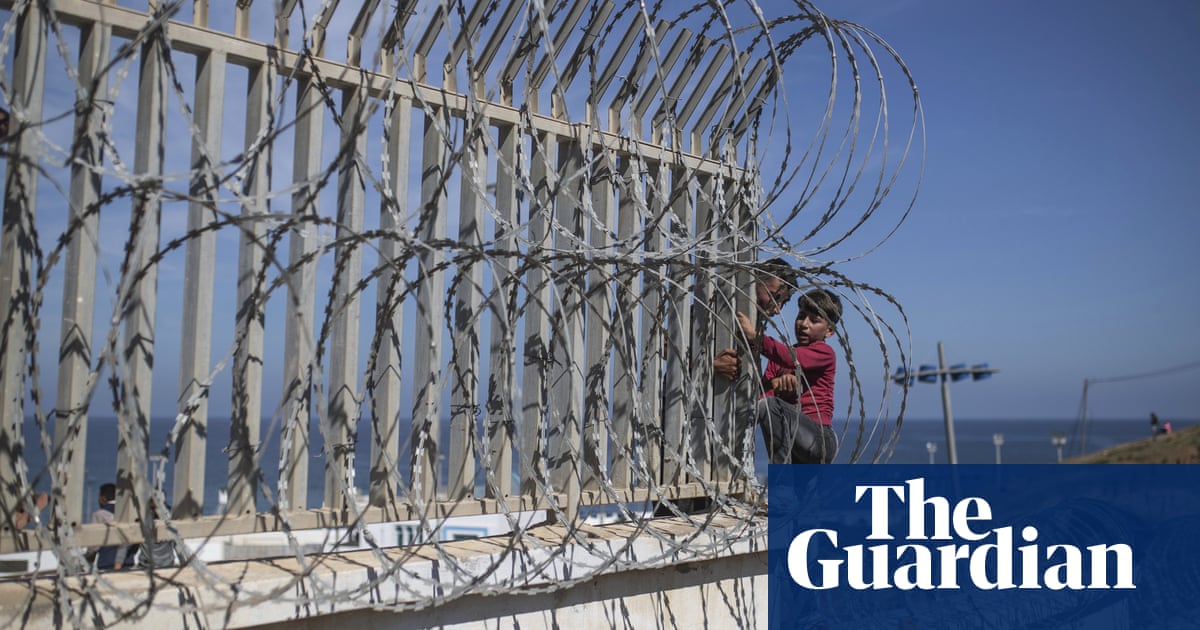
A 25-year-old individual from Cameroon has lodged a grievance with the United Nations against Spain, alleging that the country committed numerous violations of the convention against torture. The complaint was filed in an effort to obtain justice following an event in 2014 where at least 15 individuals lost their lives attempting to enter Spanish territory from Morocco.
According to the individual, who goes by the name Ludovic, it has been ten years and yet no one has been held responsible for the loss of life and harm inflicted on numerous individuals.
Ludovic stated that despite three separate legal investigations being launched into the incidents, none of them interviewed survivors or the families of the victims. He also noted that the mistreatment experienced at the border carried over into the courtroom proceedings, where they were not treated with humanity.
Ludovic stated that he was 15 years old when he joined a group of approximately 200 individuals attempting to reach the Spanish territory of Ceuta from Morocco. At that point, he had already been living in harsh conditions as an unaccompanied and undocumented minor in Morocco for about 18 months.
Although he couldn’t swim, he still tried to go around the man-made barrier that stretched across both nations. While holding onto the barrier with one hand and using the other to move forward, he heard gunshots and saw law enforcement officers using tear gas.
The Spanish government stated that the Guardia Civil used rubber bullets in an effort to stop individuals from crossing the border. Approximately 15 people lost their lives and multiple others were wounded.
According to Ludovic, he persisted in his journey towards Spain despite the police’s attempts to discourage him. He stated that a member of the Guardia Civil hit him on the arm with a baton, causing a tear in his skin.
He was bleeding and having difficulty breathing due to the teargas, but he managed to reach Spanish territory. However, he and 23 others were forced back to Morocco. He claims that he did not receive any medical attention, translation services, or legal aid during this ordeal.
The former Spanish interior minister, Jorge Fernández Díaz, stated that the police did shoot rubber bullets, but only towards the water and not at individuals. He denied that the police’s actions were a contributing factor to the deaths.
In 2019, an investigative judge reopened a case involving 16 Guardia Civil officers who were accused of reckless homicide and neglecting their duty to provide assistance. This came after the case had been archived twice before.
At this point, Ludovic had returned to Europe and settled in Germany, where he received protection. While undergoing an apprenticeship as an electrician, he communicated with NGOs to express his desire to testify as a survivor to the Spanish courts.
According to Ludovic, the judge eventually accepted his testimony during the hearing. However, the hearing was suddenly cancelled without a clear explanation and was never rescheduled. The case was then closed. No officers were found guilty.
He has filed a complaint with the UN committee against Torture, which has urged Spain to reinvestigate the incident. The complaint mentions his mistreatment at the border, his deportation to Morocco, and the lack of investigation by authorities into his situation.
The ECCHR supported the filing of the complaint, stating that the Spanish territories of Ceuta and Melilla are a “European laboratory” for violations of border rights. The organization, based in Berlin, also noted that the deceased individuals found near Tarajal beach in Ceuta have yet to be identified.
According to Hanaa Hakiki, a top legal consultant at the ECCHR, the fatalities at Playa del Tarajal represent Europe’s discriminatory and lethal border strategies, as well as their disregard for the value of Black lives.
Sani Ladan, from the immigrants rights organisation Asociación Elin, argued the “impunity” over the 2014 deaths in Ceuta had helped to lay the groundwork for what had come to be known as the Melilla massacre – the mass crossing in which at least 37 people died in 2022.
“We believed the Tarajal case was the worst possible scenario at the border,” he stated. “However, the Melilla massacre proved us wrong.”
Spain’s ombudsman, Ángel Gabilondo, has added his voice to the growing number of individuals expressing concerns about the treatment of approximately 400 asylum seekers being held at Madrid airport in recent months.
Gabilondo stated that the asylum seekers had requested international protection upon their arrival and were then forced to endure “unacceptably crowded and unsanitary conditions.”
He mentioned a space where women and some children were moved while awaiting their approval or denial for entry into Spain. The room does not have beds, phones, or essential furniture like chairs and tables, so people must sleep on mattresses on the ground and decide whether to eat on the floor or on the mattresses, according to him.
He stated that the sole shower has been unavailable for a fortnight and they do not have necessary hygiene supplies, including feminine products.
Source: theguardian.com


















